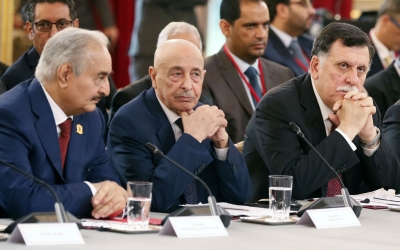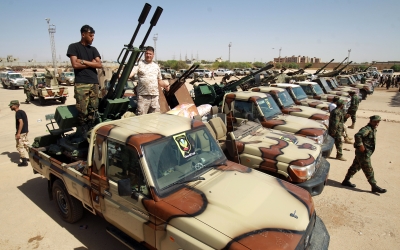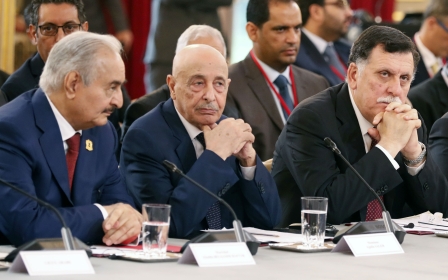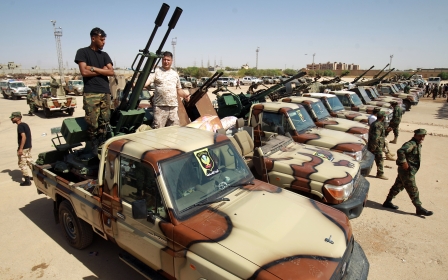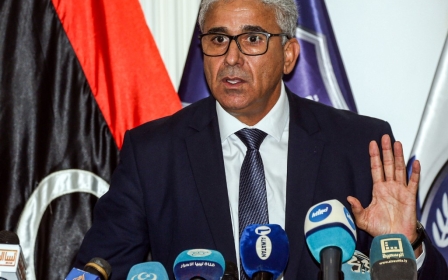Head of Libya's Tripoli government announces he wants to resign
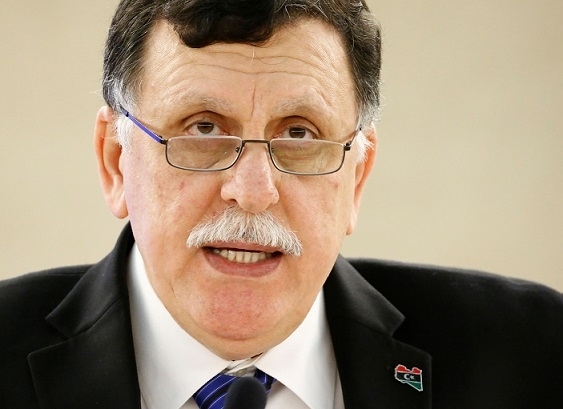
Libya's internationally recognised Prime Minister Fayez al-Sarraj said on Wednesday he wants to quit by the end of October, a move which could feed political tensions in Tripoli amid new efforts to find a political solution to the country's conflict.
"I declare my sincere desire to hand over my duties to the next executive authority no later than the end of October," he said in a televised speech.
Citing the work of UN-sponsored talks in Geneva, he pointed to progress in agreeing a way to unify Libya's fragmented state and prepare for elections.
Sarraj is head of the Government of National Accord (GNA), based in Tripoli, while eastern Libya and much of the south is controlled by Khalifa Haftar's Libyan National Army (LNA).
The civil war has drawn in regional and international powers with the United Arab Emirates, Egypt and Russia backing the LNA and Turkey and Qatar supporting the GNA.
However, both sides are made up of unstable coalitions that have come under stress since Turkey helped the GNA turn back a 14-month LNA assault on Tripoli in June.
Despite Sarraj's defence of Tripoli, his government has since descended into political infighting, and Sarraj has also faced protests over corruption and poor services.
"This is effectively the starting gun for a new round of maneouvering for what comes next," Tarek Megerisi, a policy fellow at the European Council on Foreign Relations, told Reuters.
"Ultimately it'll leave the GNA as an entity, and western Libya, a bit degraded," he added.
Militia issue
An LNA blockade of energy exports since January has deprived the Libyan state of most of its usual revenue, worsening living standards and contributing to protests in cities controlled by both sides.
In Tripoli, the protests fuelled tensions between Sarraj and the influential Interior Minister Fathi Bashagha, whom he briefly suspended last month before restoring him to his post.
Serraj's departure could lead to new infighting among other senior GNA figures, and between the armed groups from Tripoli and Bashagha's coastal city of Misrata that wield control on the ground.
"The militia issue will be more vivid," said Jalel Harchoui, a research fellow at the Clingendael Institute.
Serraj has headed the GNA since it was formed in 2015 as a result of a UN-backed political agreement aimed at uniting and stabilising Libya after the chaos that followed the 2011 uprising that ousted Muammar Gaddafi.
Despite the failings and weakness of the government he led, he has been seen as a moderate with whom parts of the eastern faction and their foreign allies, as well as other international players, were comfortable dealing with.
Under a ceasefire announced last month, the rival sides will be asked to agree on a new presidential council structure that unifies the country's rival administrations and schedules elections.
Middle East Eye delivers independent and unrivalled coverage and analysis of the Middle East, North Africa and beyond. To learn more about republishing this content and the associated fees, please fill out this form. More about MEE can be found here.


